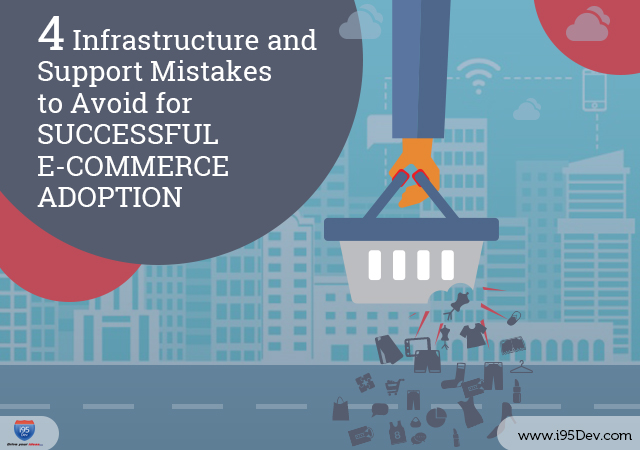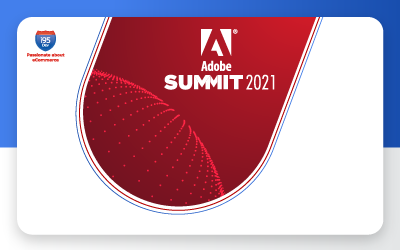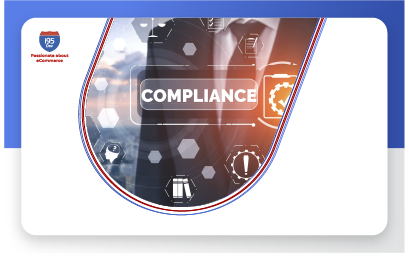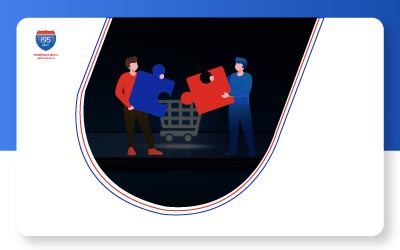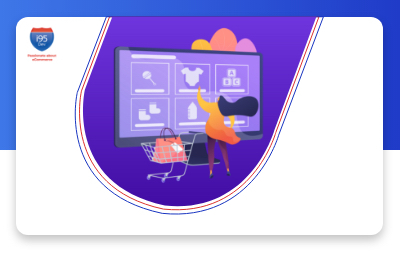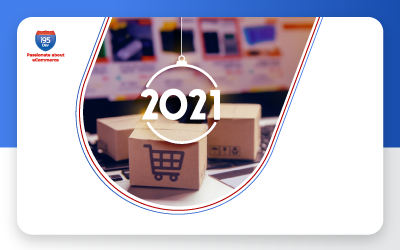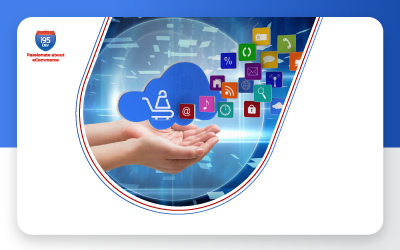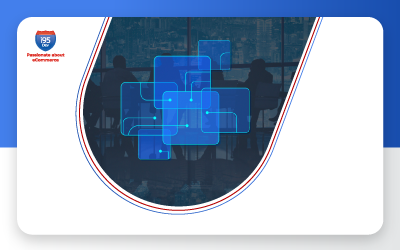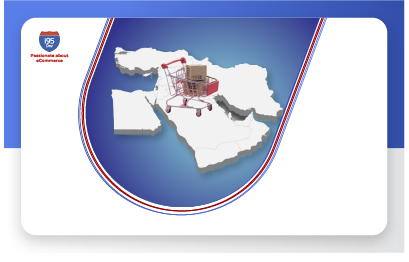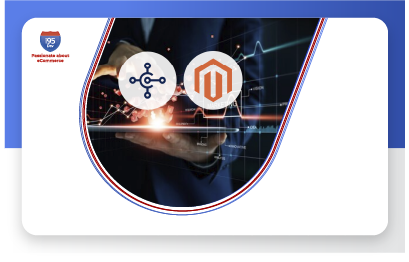In the earlier two blogs, we had looked at the 6 Requirement Mistakes to Avoid for Successful E-commerce Adoption and 6 Usability Mistakes to Avoid for Successful E-commerce Adoption. In this blog, we will look at the 4 infrastructure and support mistakes that e-commerce businesses must avoid for e-commerce success.
1) Not optimizing for speed
Did you know, according to data from Akamai and Gomez a 1 second delay in page response can result in a 7% reduction in conversion and 79% of online shoppers would never return to a website to make another purchase because of poor performance during their last visit?
The importance of a fast e-commerce store cannot be emphasized enough. A slow e-commerce store not only has an impact on conversions but also its search engine visibility (Google penalizes websites that load slow). E-commerce companies while focusing on the look and feel of the website, ignore the importance of a fast e-commerce store.
While the look and feel of the e-commerce store is important, businesses must take every possible step to optimize the performance of the store like
- Optimize images and videos,
- Optimize CSS and java scripts,
- Use a content delivery network,
- Utilize caching or in-memory technologies to avoid accessing a database unnecessarily,
- Use compression software to reduce the size of the data that is sent to a browser,
- Optimize platform configurations, and more.
2) Discounting the role of hosting and right infrastructure
A good hosting provider and right hosting infrastructure are important for multiple reasons
- It impacts the performance of your e-commerce store – a suboptimal or shared (depending on the size of your business) server can have a huge impact on the speed of your e-commerce store.
- It impacts your store’s uptime – a single minute of downtime can have a huge negative impact on your bottom line
- It affects your site’s security – a good hosting provider can take/ recommend appreciate steps to prevent your website from getting hacked, install security patches and updates, etc.
Hence, for your e-commerce store to be successful you must ensure that you partner with the right hosting provider (checkout Nexcess) and invest in the right infrastructure; that is scalable to support you both during peak and off season periods. Broadly, look for
- Look for uptime guarantees,
- Shared vs. Dedicated servers – for maximum performance and stability, not to mention PCI compliance, opt for a dedicated server,
- Cloud vs. Physical,
- Server Backups – ensure frequent application and data backups to avoid disasters,
- Managed vs. Unmanaged hosting, and
- Support
3) Not having the right experience, and implementation and deployment support
A successful e-commerce store is not built overnight; many things are involved in building an e-commerce store that actually makes sales. To be successful you have to ensure
- you have someone (or a team) who understands e-commerce and can help you build and drive your e-commerce strategy (from look and feel, user experience, product descriptions, images, to fulfillment and more)
- you have someone (or a team) who can help you map your requirement and select the right e-commerce platform,
- you have someone (or a team) who can help you get the e-commerce implementation and deployment right, etc.
Businesses often trivialize the importance of experience and expertise and decide to take a number of activities in-house to save costs. This often results in cost and time overruns, that eventually leads to the shelving of the project.
Mastery and implementation of the industry’s best practices in time are important for realizing a robust e-commerce system. It is advisable to partner with an experienced and expert service provider rather than performing all the activities in-house. The greatest advantage of this is that your project will be controlled by experts with precise knowledge and specialized tools that cannot easily be replicated by an in-house team. Moreover, your in-house team’s time is better utilized on customers; thereby leading to faster ROI on your e-commerce system.
4) Not having a support channel and/or team in place
Support to manage and maintain the e-commerce store needs a special mention. While a good e-commerce partner can offer you the required services, businesses often consider e-commerce to be a one-time activity and ignore engaging with partners (or engage with the wrong partner who does not provide good support) for ongoing support.
Getting your e-commerce store up and running is only a tip of the iceberg. Running a successful e-commerce store requires ongoing work and involves activities like running newsletter campaigns, updating website information and layout, updating banners and product images, activating and promoting coupons, integrating with external systems and more. This can be overwhelming for businesses to manage on their own and without support even difficult to implement it the right way.
So, businesses must look to engage with partners that can not only help them implement but also help them manage, maintain and run their e-commerce store on an ongoing basis.
Are you planning to adopt e-commerce soon or have already been through the exercise? Let us know your thoughts by commenting below.



